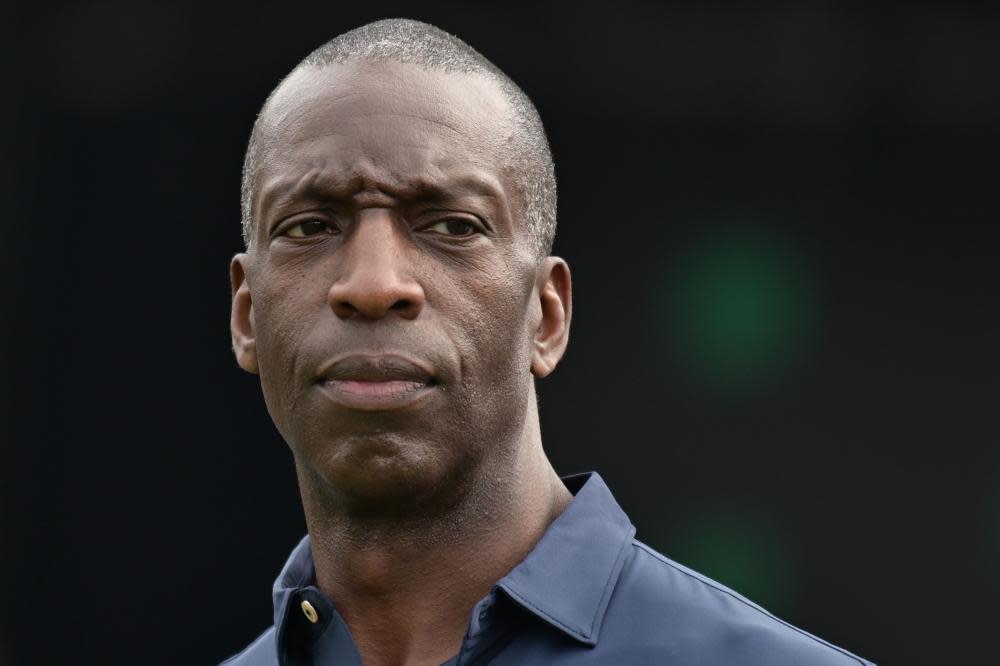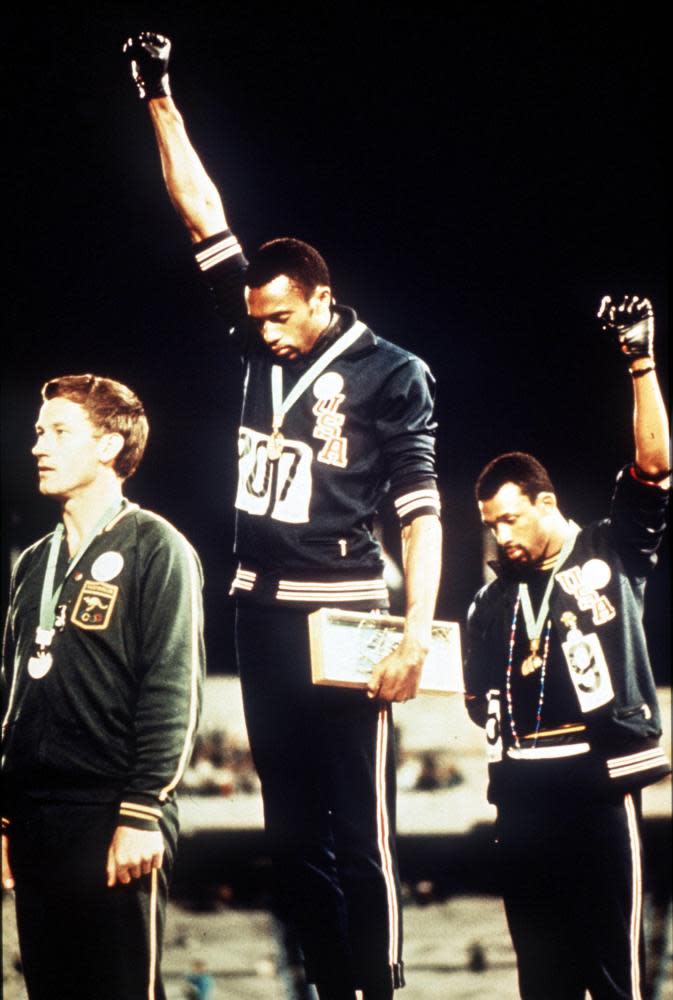The week in audio: Defiance: A History of Protest in Sport; Adventures With Dead Jews and more

Defiance: A History of Protest in Sport (Audible) | audible.co.uk
Adventures with Dead Jews (Tablet) | apple.com
Smoke Screen (Auddy) | auddy.co
In My Head (BBC Radio 4) | BBC Sounds
Michael Johnson, the American Olympic 200m and 400m gold medallist, has long been an excellent sports commentator for the BBC, his analysis always calm, wry and expert. Now he’s made a podcast for Audible, Defiance: A History of Protest in Sport, in which he examines how and why elite athletes become involved in protest. He does the work, too, conducting the interviews himself and examining his own reasons for making the show. Johnson’s hosting style is like his commentary, so don’t expect fireworks, but instead an honest, discursive, invested companion to some fascinating stories.
Defiance dismisses the establishment idea that athletes should “shut up and play the game”. Sports stars have effected political change for many years, and there is a lot of history to unpack; so much that at the end of the opening episode – about Olympic track and field – Johnson throws out a few names that he would have liked to include. One is Peter O’Connor, an Irish athlete who, in 1906, climbed up a flagpole in the Olympic stadium in Athens, waving a flag that read Ireland For Ever. He had been forced to compete under the British flag because the Irish didn’t have an Olympic team. Someone must make a programme about him!

I enjoyed Johnson’s own progression through the series. He wonders whether he would have done what Tommie Smith and John Carlos did at the 1968 Mexico City Olympics when, having won gold and bronze in the 200m, they raised their fists in a Black Power salute. The consequences for them and their families were appalling: Carlos’s brothers, who were serving in Vietnam, were discharged; Smith’s younger brothers were kicked off their high-school team; Smith and Carlos were unable to make a living; Carlos’s former wife ended up taking her own life. The second-place (white) athlete, Peter Norman, who supported Smith and Carlos in their protest by wearing a human rights badge, was shunned in his native Australia and not picked for the next Olympics.
There are so many stories. Women’s sport is covered specifically in episode five; the show reminds us that even now, the world-beating US women’s football team is still not paid the same as, nor given equal privileges to, the non-world-beating men’s. Johnson interviews Hope Solo, who has taken the US Soccer Federation to court over violation of the Equal Pay Act.
And the thought-provoking final episode, The Cost of These Dreams, examines why society still treats protesting athletes so badly “when history almost always proves that the defiant ones are right”. Johnson himself is interrogated, by Dr Ricky Jones, a professor of pan-African studies, about whether he would have taken the knee in his 1990s heyday. “What’s the responsibility of individual athletes?” Jones asks Johnson. “There was a lot I didn’t know back then… I was asleep,” says Johnson. It’s riveting. Defiance is skewed towards US sports, but this is an excellent series.
One of the other characters we meet in the series is the Italian cyclist Gino Bartali, who helped save Jewish people during the second world war. Author and journalist Dara Horn, who wrote the book People Love Dead Jews, has an accompanying podcast series about Jewish identity, Adventures with Dead Jews. Horn questions much of the contemporary approach to Jewish culture. Why does the New York Holocaust museum present Jewish child victims as almost exactly like contemporary American children, when of course they wouldn’t be similar at all? Why does Schindler’s List relegate Jewish people to mute crowds needing to be saved? Horn interrogates our comfortable assumptions while making us laugh in the process.
There are many, many true-crime podcasts out there, as we know. Smoke Screen is one I had recommended to me. It’s about big tobacco and corporate espionage. Made by the wonderful Bureau of Investigative Journalism, Smoke Screen isn’t bad, by any means, but it’s hard to muster interest in inter-company spying when the companies all flog cigarettes. Though presenter Victoria Hollingsworth works hard, particularly bigging up one character, Belinda Walter, as a sort of female James Bond of ciggy PR, the problem isn’t one of access or investigation - it’s one of caring.
Woman’s Hour has been magnificently furious over the police’s handling of the Sarah Everard case over the past few weeks. And on Tuesday’s Today programme, Mishal Hussein interviewed with sensitivity and shock a woman who was harassed by a detective sergeant when she went to report a crime. He was found guilty of gross misconduct but allowed to keep his job.
So it was unsettling to hear the repeat of In My Head at 9.30am on Radio 4 last Wednesday. First broadcast in 2018, the opening episode of this series recorded in immersive 3D stereo takes us inside the head of Britain’s most successful paparazzo, George Bamby. (As an aside, he’s now known as George Bamby-Salvador, as he believes that the violent prisoner Charles “Salvador” Bronson is his father, apparently. Nice gesture of parental respect, there.) Bamby’s opening speech, in which he discusses travelling to Padstow to photograph Fern Britton in her bikini… well, it’s disturbing, to say the least. “Fern is trapped,” he gloats. “She is getting done today, end of. There is nothing she can do about it.”
Off he goes, merrily stalking a woman for his own gain. Ah, it’s just a game, he says: “No matter how much they say they hate it, they love it.” Keep up the protests. We have such a long way to go.

 Yahoo Movies
Yahoo Movies 
